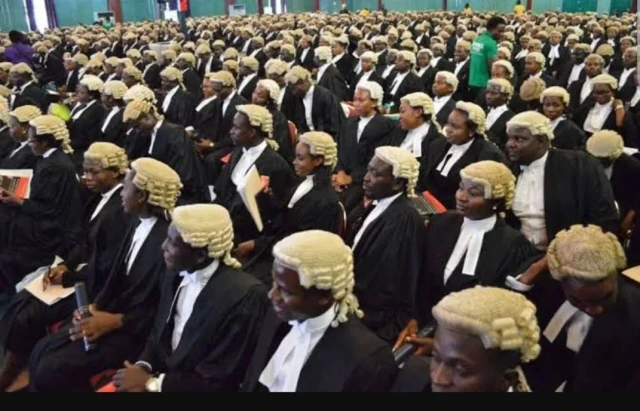The discussion surrounding self-defense, vigilante services, and the rights of Nigerians to possess firearms has provoked a variety of responses from legal experts nationwide.
They commented on the appropriateness of former Chief of Army Staff, General Theophilus Yakubu Danjuma, and others advocating for the right of Nigerians to carry weapons for protection against armed criminals and insurgents. While some supported easing gun ownership regulations to empower citizens amidst growing insecurity, others raised concerns about the possible dangers of widespread access to firearms.
A Senior Advocate of Nigeria (SAN), Dr. Abiodun Layonu, emphasized the need for extreme caution regarding this proposal and insisted it must stay within legal parameters.
He pointed out that while the Nigerian Constitution acknowledges the right to self-defense, it does not permit the indiscriminate arming of citizens or vigilante groups without appropriate legal support and oversight.
Layonu asserted that any initiative to enable civilians to carry guns needs a thorough legal framework, including licensing, regulation, and strict accountability to deter misuse and prevent a rise in violence.
He warned that without these safeguards, an increase in weapons could lead to chaos, weakening national security rather than bolstering it.
Layonu urged the government to focus on reinforcing formal security agencies and enhancing intelligence work, rather than taking what could be a perilous shortcut.
Chief Solo Akuma (SAN) expressed his opposition to this call, citing the current circumstances in the country.
He warned that allowing the populace to carry firearms could yield catastrophic results, especially in a context with weak law enforcement where criminals could easily access weapons. Instead, he recommended a more sustainable and regulated approach to security.
Akuma suggested increasing police forces and, crucially, endorsing the establishment of state police to bring security personnel closer to the community for improved protection.
He raised concerns that while some responsible individuals might store firearms safely at home, others could irresponsibly carry them in public, leading to a rise in violence and insecurity.
He pointed out that firearms in the hands of herders, who allegedly use them to hunt humans instead of protecting livestock, exemplify this issue.
Akuma contended that arming the general public is not a feasible solution for Nigeria's security problems, advocating instead for the reform and enhancement of existing security institutions.
Adeola Ashaolu, a lawyer based in Abuja, highlighted the legal foundation for self-defense in Nigeria.
He noted that Section 33(2)(a) of the 1999 Constitution affirms the right to self-defense, stating that an individual shall not be charged with a crime if the force used is reasonably necessary to protect themselves or others from unlawful violence.
He also mentioned that both the Criminal Code (for Southern Nigeria) and the Penal Code (for Northern Nigeria) recognize the defense of persons and property against unlawful aggression.
Ashaolu specified that lawful self-defense requires the attack to be unlawful and imminent, the defensive force to be proportionate to the threat, the defender to not have provoked the attacker, and that continued force after the threat has ended becomes illegal.
Regarding the establishment of vigilance groups like the Vigilante Group of Nigeria (VGN) and Amotekun Corps, Ashaolu noted these entities operate under state laws or community agreements.
He explained these groups function as community policing support under different state regulations, though they are not fully incorporated into the Nigeria Police Force. Concerning private gun ownership for self-defense, he pointed out that the Firearms Act demands Nigerians acquire a license to possess firearms.
He observed that licenses are stringent, with ownership of automatic guns forbidden. In practice, private citizens seldom receive gun permits unless they have political connections or work in private security.
While acknowledging the constitutional right to self-defense, Ashaolu stated that the means to exercise this right whether through vigilante groups or personal firearms must be strictly governed.
He insisted that all reforms in this area should be guided by public safety, accountability, and human rights protections.
David Adeyi also contributed, asserting that Nigerians have a constitutional right to self-defense, which includes bearing arms under specific circumstances.
He remarked that the current licensing system favors the wealthy and well-connected, leaving ordinary citizens at risk.
He argued that the state’s inability to safeguard lives validates the citizens’ right to defend themselves, provided they comply with legal stipulations.
Another lawyer, Chief Chinedu Obiekwe, cautioned that loosening gun ownership regulations might heighten violence and crime.
He urged the Federal Government to enhance existing security measures instead of introducing more weapons into society.




















